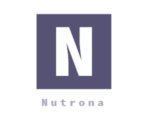Every year Poles spend more and more money on dietary supplements. In 2018, supplements and over-the-counter drugs cost us over PLN 13 billion. This is the largest number of all European countries. While some decisions are certainly made wisely by us and concern the supplementation of the missing vitamins and microelements, many purchases were driven by intrusive advertising and the conviction that if we do not have energy, we need to eat supplements.
In addition, we often choose suspicious drugs that end up in pharmacies without proper supervision. Instead, we should be guided by knowledge and choose, together with doctors and nutritionists, supplements that we really lack.
What are the supplements most often purchased by Poles?
We mainly choose vitamin and mineral preparations, among which the leading are those containing magnesium and vitamin A plus E. The next place is taken by supplements from the beauty sector, that is all kinds of specificities for the health of the skin, hair and nails. We are also happy to use agents that support the functioning of the digestive, urinary and immune systems. And, of course, preparations that improve sexual performance. Their market share is constantly growing.
In general, supplements should be treated as a supplement to deficiencies, and not a medicine that will give us health and replace a proper diet. Getting them can have a positive effect on our health, but the key to this is consulting a doctor and performing appropriate tests. If, in addition, we are in the course of any pharmacotherapy, we take medications at the same time, we must be careful. It is about the mutual interactions between the ingredients, as well as the quality of the substances and their clinically proven effectiveness. Without lab test results, we can make wrong decisions and purchase products that are convincingly advertised but not suitable for us. We should also remember not to give these preparations to children under six years of age, without a medical indication.
Supplements are literally everywhere to buy – from pharmacies to drugstores, bazaars and the Internet. But actually, who should be taking them?

Who are dietary supplements intended for?
Not only people who take care of themselves on a daily basis should be interested in what else can be provided to the body. Supplements are not only for vegans, vegetarians, the elderly or professional athletes. Supplementation also depends on how we eat and what lifestyle we lead. They should be taken by adults who, for example, eat a diet below 1600 kcal a day, but also by pregnant women. People who give up dairy products may be deficient in vitamin D and calcium. Also postmenopausal women, because in them lowering estrogen can lead to osteoporosis. Anyone who feels that their body has unexpected changes in functioning should consider seeing a doctor about using supplements.
What doses of dietary supplements to use
At the beginning, it is good to look at the daily limits that are stated on the label on good quality products. You have to be careful not to exceed them. Large doses can be detrimental to health – increasing the risk of developing malignant tumors, as in colorectal cancer in those who take multiple doses of folic acid. Research from European Union laboratories proves that in the intake of vitamins B1, B2, B12, biotin, pantothenic acid and vitamin K, there is no risk of exceeding the upper daily limit.
The risk is with vitamin A, beta-carotene, calcium, copper, iron, iodine, manganese, and zinc, although it all depends on individual predispositions and environmental factors.
Safe supplements, i.e. what?
We should definitely be careful and choose supplements that have any certificates. We will not buy any prescription preparations over the Internet, so if a pharmacy offers such drugs online, it is certainly breaking the law. Online pharmacies can only sell OTC drugs by mail order, i.e. over-the-counter drugs. The network offers many miraculous healers for chronic diseases, including cancer, but also drugs for slimming, contraceptive pills and anabolic steroids. The websites of legally operating pharmacies should have a white cross with four stripes in the background and a link to the National Register of Permits for Running Pharmacies and Pharmacy Points and a link to the Public Information Bulletin of the Main Pharmaceutical Inspectorate.
Supplement manufacturers, unfortunately, do not have to do any research before placing them on the market.
Only send the packaging design to the Chief Sanitary Inspectorate and inform about the product launch. This simplified procedure does not require evidence of efficacy, research analysis or a safety profile. This is why those supplements that have any research information, recognized certifications, or simply have been on the market for many years – these are more likely to be effective and safe.
In conclusion, supplementation is a complex issue, so it is good to take into account all the factors we have listed before making a decision. Let’s choose supplements adequately to our needs and deficiencies indicated by the doctor or dietitian. Only rational supplementation with a good and proven product will be effective and safe.





